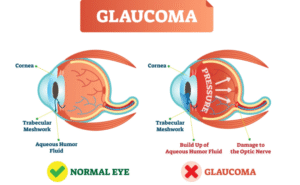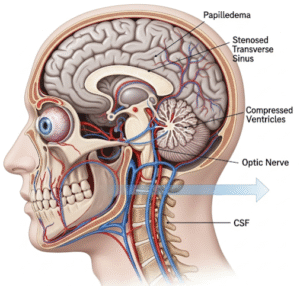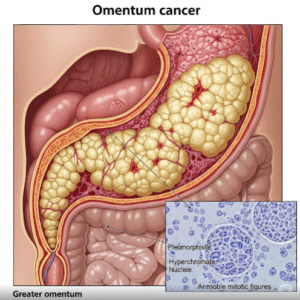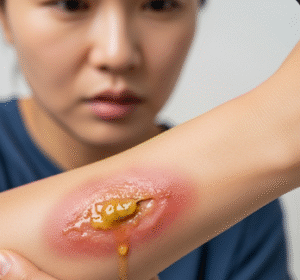➤ Overview
Sore throat and headache are common symptoms that can occur together due to viral or bacterial infections, allergies, or environmental triggers. While often mild and self-limiting, these symptoms can sometimes signal more serious underlying conditions, such as sinus infections, influenza, or streptococcal pharyngitis.
In South Korea, ENT specialists, general practitioners, and neurologists frequently assess patients with these symptoms to determine the underlying cause, appropriate treatment, and prevention strategies. Proper care ensures relief from discomfort, prevention of complications, and maintenance of overall health.
➤ Key Facts
→ Sore throat is characterized by pain, irritation, or scratchiness in the throat.
→ Headache can be tension-type, migraine, or secondary to infection.
→ Combined symptoms are often caused by upper respiratory infections, sinusitis, or systemic viral illnesses.
→ In Korea, comprehensive diagnostic tools and targeted therapies are available.
→ Symptoms can affect daily activities, sleep, and concentration.
→ Persistent or severe symptoms may indicate bacterial infections, chronic sinus issues, or neurological problems.
→ Early medical intervention reduces risk of complications like tonsillitis, sinus abscess, or dehydration.
➤ What is Sore Throat and Headache?
Sore throat is a condition where the throat feels painful, scratchy, or inflamed, often exacerbated by swallowing or talking. Headache is a pain or pressure in the head or upper neck. When these symptoms occur together, they usually indicate a shared underlying cause affecting the upper respiratory tract or systemic health.
→ Viral causes – Common cold, influenza, or mononucleosis.
→ Bacterial causes – Streptococcal infections, tonsillitis, or sinusitis.
→ Allergic reactions – Dust, pollen, or chemical irritants.
→ Environmental factors – Dry air, pollution, or smoke exposure.
→ Stress or tension – Can exacerbate headaches and throat discomfort.
Korean physicians use clinical evaluation, throat examination, and imaging when necessary to pinpoint the cause.
➤ What Symptoms are Related?
Sore throat and headache often occur with other associated symptoms, which can guide diagnosis:
→ Fever or chills indicating infection.
→ Nasal congestion or runny nose in viral or allergic causes.
→ Cough or postnasal drip, worsening throat irritation.
→ Fatigue or malaise from systemic infection.
→ Swollen lymph nodes in the neck or jaw.
→ Redness or inflammation in the throat, tonsils, or uvula.
→ Sensitivity to light or sound if headaches are migraine-related.
→ Difficulty swallowing or speaking in severe throat infections.
➤ What Causes / Possible Causes?
Several factors can lead to the combined occurrence of sore throat and headache:
→ Viral upper respiratory infections – Cold, flu, COVID-19, or mononucleosis.
→ Bacterial infections – Streptococcal pharyngitis, tonsillitis, or sinusitis.
→ Allergic reactions – Pollen, dust, or environmental irritants.
→ Sinus inflammation or sinusitis – Causes facial pressure, headache, and throat irritation from postnasal drip.
→ Dehydration or dry air – Leading to throat dryness and tension headaches.
→ Tension or stress-related headaches – Can accompany minor throat irritation.
→ Environmental exposure – Smoke, pollution, or chemical irritants causing inflammation.
→ Chronic conditions – Gastroesophageal reflux disease (GERD) or chronic rhinitis.
➤ When Should I See My Doctor?
Medical attention is required if symptoms are persistent, severe, or accompanied by alarming signs:
→ Sore throat or headache lasting more than one week without improvement.
→ High fever, difficulty breathing, or severe neck pain.
→ Swelling or pus in the throat, tonsils, or lymph nodes.
→ Headache accompanied by visual disturbances, confusion, or vomiting.
→ Recurrent infections or chronic sinus problems.
→ Signs of dehydration or inability to swallow fluids.
→ Symptoms unresponsive to over-the-counter medications.
➤ Care and Treatment
Treatment depends on the cause, severity, and associated symptoms:
→ Hydration and rest – Essential to aid recovery from viral infections.
→ Analgesics and antipyretics – Acetaminophen or ibuprofen for pain and fever relief.
→ Saltwater gargles and throat lozenges – Reduce throat irritation.
→ Nasal irrigation or decongestants – For sinus-related symptoms.
→ Antibiotics – Prescribed only for confirmed bacterial infections.
→ Allergy management – Antihistamines, avoiding triggers, and environmental control.
→ Humidifiers or steam inhalation – Relieve dryness in the throat and nasal passages.
→ Lifestyle adjustments – Avoid smoking, alcohol, and irritants that worsen symptoms.
➤ Treatment Options in Korea
South Korea offers comprehensive management for patients with sore throat and headache, integrating diagnostics, medical care, and preventive strategies:
Diagnosis in Korea
→ Physical examination by ENT specialists or general physicians.
→ Throat swabs or cultures to detect bacterial infections.
→ Imaging or sinus evaluation for chronic or severe cases.
Medical Treatments in Korea
→ Prescription antibiotics for bacterial pharyngitis or sinusitis.
→ Analgesics, antipyretics, or antiviral medications as needed.
→ Management of allergies or chronic sinus conditions contributing to symptoms.
Advanced Therapies in Korea
→ Laser or minimally invasive ENT procedures for chronic sinus or nasal issues.
→ Integrative therapies combining Western medicine and Korean traditional treatments for symptom relief.
→ Personalized treatment plans addressing underlying causes, lifestyle, and preventive care.
Rehabilitation & Support in Korea
→ Education on hydration, rest, environmental control, and preventive strategies.
→ Follow-up monitoring to ensure recovery and prevent recurrence.
→ Support for chronic cases with tailored care, including stress management and lifestyle counseling.












